How Our Gut Health Impacts Wellness
A human is an ecosystem with one host and many microscopic organisms that work together for normal health. Researchers at The University of Toledo are working to better understand the microorganisms living in our bodies and how improving our gut health can help treat and even prevent illnesses.
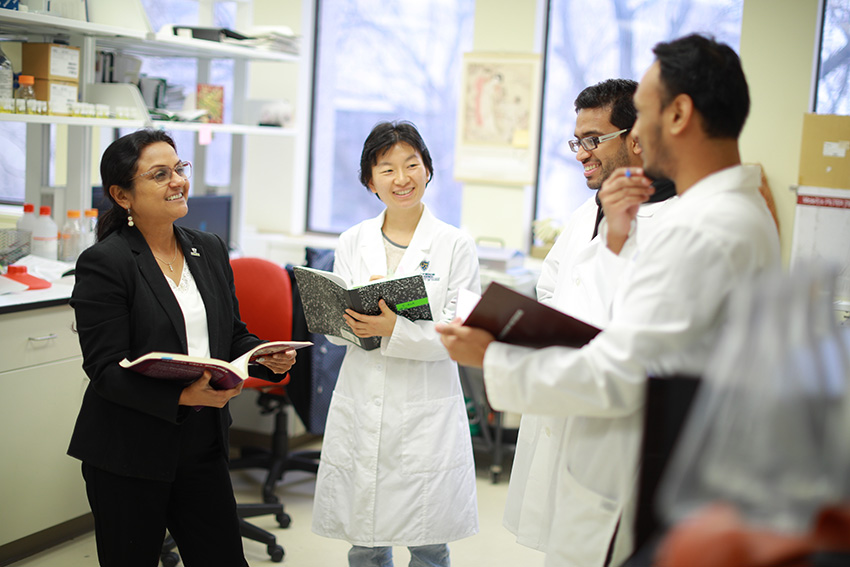
More than 100 million Americans have high blood pressure, but only about a quarter of those individuals have it under control. Bina Joe, Ph.D., Distinguished University Professor and chair of the Department of Physiology and Pharmacology, has a career of innovative research connecting high blood pressure, genetics and gut bacteria to unravel causes of hypertension beyond one’s diet and exercise routine.

New research published in the journal Hypertension by Tao Yang, Ph.D., assistant professor in the Department of Physiology and Pharmacology, suggests that gut bacteria could be why individuals with treatment-resistant hypertension don’t respond well to medication to regulate blood pressure. While long-term use of antibiotics isn’t a realistic strategy, altering your microbiota through probiotics, prebiotics and changes in diet could help.
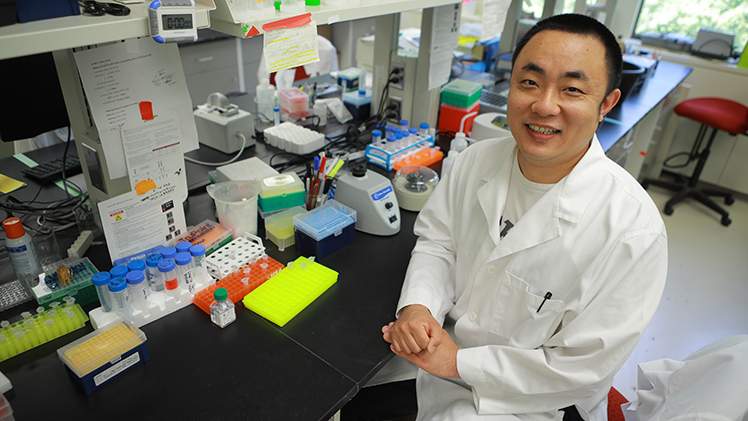
High bile acid levels in your blood and consumption of highly refined fiber together create a recipe for increased risk of liver cancer, according to research by Matam Vijay-Kumar, Ph.D., professor in the Department of Physiology and Pharmacology and director of the UToledo Microbiome Consortium, and Beng San Yeoh, Ph.D., a postdoctoral fellow.
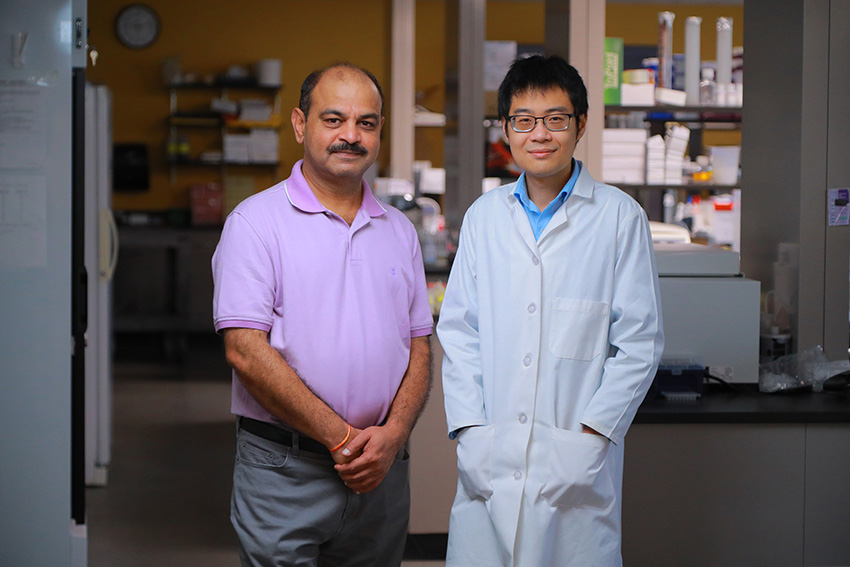
The prestigious Ruth L. Kirschstein National Research Service Award (F31) from the National Cancer Institute was awarded to Rachel Golonka, a doctoral student studying molecular medicine. The competitive fellowship will support her research on metabolites that tamp down the immune system and help liver cancer proliferate.
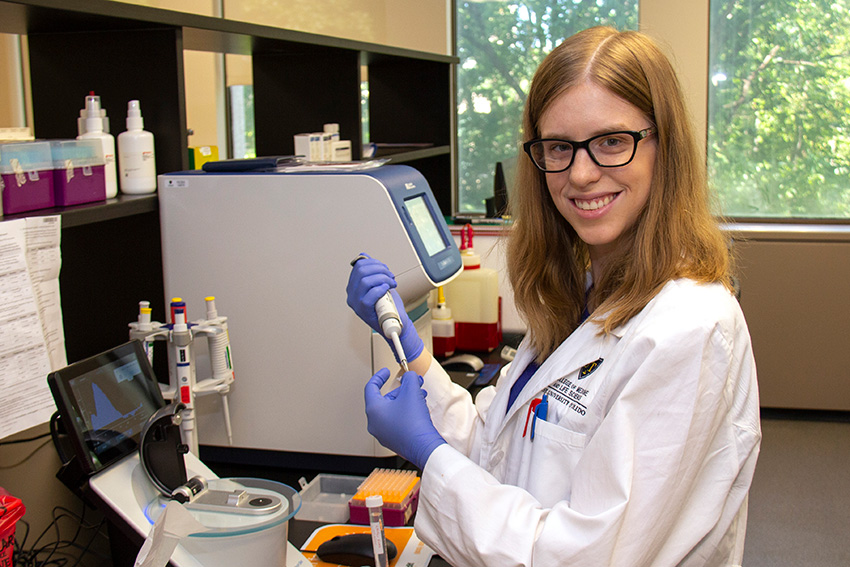
An imbalance in gut microbiota can cause brain inflammation and impact the cognitive decline people experience as they age in a new area of study by professor Zahoor Shah, Ph.D. who is exploring the “gut microbiota-brain axis” and the links between the digestive track and central nervous system.
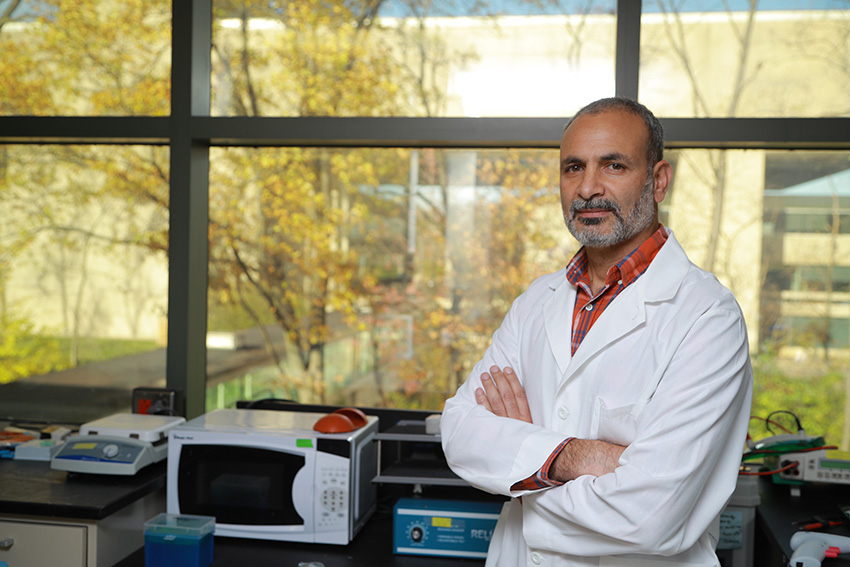
The American Heart Association presented Bina Joe, Ph.D., who also serves as the founding director of the UToledo Center for Hypertension and Precision Medicine, with the Harriet Dustan Award in 2019. The award recognizes female investigators who have made outstanding contributions in the field of hypertension, and Joe was recognized for her nearly two decades studying and isolating the role genetics play in individuals with high blood pressure.

UToledo College of Medicine and Life Sciences faculty members Piu Saha, Ph.D., and Tao Yang, Ph.D., received prestigious early career development awards from the American Heart Association to fund their hypertension work. Saha also is supported by the Crohn’s & Colitis Foundation to study inflammatory bowel disease.

Learn More
- MSN: Study Finds Not All Fiber Is The Same And Some Can Be Hazardous To Your Health
- Medical News Today: Resistant high blood pressure: Gut bacteria may be to blame
- Eating Well: Your Gut Health Might be Making it Harder to Keep Your Blood Pressure in Check, New Science Says — Here’s What You Need to Know
- Philly Voice: Gut Bacteria May Explain Why Hypertension Drugs Don’t Work For Everyone With High Blood Pressure
- Easy Health Options: This Could Be Why Your Blood Pressure Medicine Isn’t Working
- Spirituality & Health: Science & Spirit: Psychedelics, High Blood Pressure and Raw Chicken
- Science Magazine: Giraffe genome holds keys to its peculiar body—and clues to hypertension treatments
- Knowridge Science Report: How Your Gut Can Make Blood Pressure Meds Less Effective
- Medical Dialogues: Gut Bacteria May Inactivate Certain BP Medicines Leading to Resistant Hypertension
- The Blade: UToledo research explores how breast milk protects infants from early-life diseases